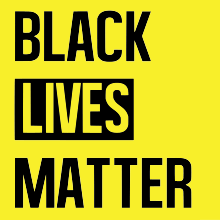The talk (racism in the US)
The talk is a colloquial expression for a conversation some black parents in the United States feel compelled to have with their children and teenagers about the dangers they face due to racism or unjust treatment from authority figures, law enforcement or other parties, and how to minimize them. The practice dates back generations and is often a rite of passage for black children.
History
Black youth in the United States have "always been warned" about dealing with authority figures safely and instructed by their parents or other caregivers on the dangers they face due to racism.[1][2][3] Variations of the talk have been conducted in black families for decades[4] or generations;[2][5] the practice "dates back to slavery and has lasted centuries".[1]
Utne Reader called the talk "a rite of passage" for black children.[6] Judy Belk, writing in the Los Angeles Times, called the talk "an unfair but necessary burden we carry in the black community, one we reluctantly pass down" and "a painful ritual."[7]
Content
The conversation often focuses on how to de-escalate encounters with police[6][7] especially given the high frequency of black men being pulled over for minor, insignificant or non-existent issues, also referred to as driving while black. Sometimes the talk addresses encounters with white supremacists or vigilantes.[1][8]
The "talk" has been described as an example of preparation for bias in racial-ethnic socialization[9] and typically addresses specific advice in dealing with interactions with law enforcement. Brooks et al. (2016) described the type of advice for those confronted by law enforcement while driving:
- Pulling over your vehicle right away
- Keeping hands visible on the steering wheel and not making sudden moves
- Not reaching for items in your wallet or glove compartment, without informing the law enforcement officer first
- Being as polite as possible, using "Yes sir, officer"
- Not arguing, even if you are right
The perception of a need for these behaviours has been described as racialized legal cynicism.[9]
According to PBS, the talks usually include instructions such as:
If you are stopped by the police: Always answer 'yes sir, no sir'; never talk back; don’t make any sudden movements; don’t put your hands in your pockets; obey all commands; if you think you are falsely accused, save it for the police station. I would rather pick you up at the station than the morgue…"
— The Talk: Race in America[10]
According to Vox, for blacks in the United States, "a typical police stop turning into a violent encounter is a very real, terrifying possibility."[5]
Depiction
The New York Times made a short documentary in 2015 featuring the experiences of black Americans in having this conversation with their children and their memories of their own parents' conversations with them.[11] PBS created a two-hour documentary, The Talk: Race in America, in 2017.[10] Procter & Gamble produced a commercial called "The Talk" in 2017.[12] A 2018 episode of Grey's Anatomy included a black couple having the talk with their son.[13] In 2019, PBS station WFYI, the SALT Project, Trinity United Church of Christ and Christian Theological Seminary partnered to develop a short video for young black men called "Get Home Safely: 10 Rules of Survival".[14]
See also
References
- Wright, Bruce C. T. (July 29, 2019). "The One Story: The Evolving Relevance Of 'The Talk'". NewsOne. Retrieved May 30, 2020.
- Blake, John (May 29, 2020). "George Floyd. Ahmaud Arbery. Breonna Taylor. What can black parents possibly tell their kids now about staying safe?". CNN. Retrieved May 30, 2020.
- LaMotte, Sandee. "How to talk to your children about protests and racism". CNN.
- Bouchard, Kelley (July 17, 2016). "African-American parents say 'The Talk' is a life-and-death matter". Press Herald. Retrieved May 30, 2020.
- Lopez, German (August 8, 2016). "Black parents describe "The Talk" they give to their children about police". Vox. Retrieved May 30, 2020.
- Plourde, Arienne Thompson; Thompson, Amelia; Magazine, from Notre Dame (2017). "The Talk: Surviving Police Encounters While Black – Community – Utne Reader". Utne. Retrieved May 30, 2020.
- Belk, Judy (November 3, 2019). "Opinion: As a black parent, I need to update 'the talk' I have with my kids about police". Los Angeles Times. Retrieved May 30, 2020.
- Bunn, Curtis (May 19, 2020). "After Arbery shooting, black parents are rethinking 'the talk' with sons to explain white vigilantes". NBC News. Retrieved May 30, 2020.
- Unnever, James D.; Gabbidon, Shaun L.; Chouhy, Cecilia (October 26, 2018). Building a Black Criminology, Volume 24: Race, Theory, and Crime. Routledge. ISBN 978-0-429-75744-0.
- "The Talk Archives". The Talk | Race in America. Retrieved May 30, 2020.
- "Opinion | A Conversation With My Black Son". The New York Times. ISSN 0362-4331. Retrieved May 30, 2020.
- Bell, Gabriel (July 25, 2017). "Moving ad captures "The Talk" every black parent has with their kids". Salon. Retrieved May 30, 2020.
- Willis, Kiersten (January 27, 2018). "Grey's Anatomy Takes a Hard Look At 'The Talk' Black Parents Have to Give Their Sons About Police Brutality". Atlanta Black Star. Retrieved May 30, 2020.
- "10 Rules of Survival if Stopped by the Police | Talk Back | PBS". 10 Rules of Survival if Stopped by the Police | Talk Back | PBS. Retrieved May 30, 2020.
